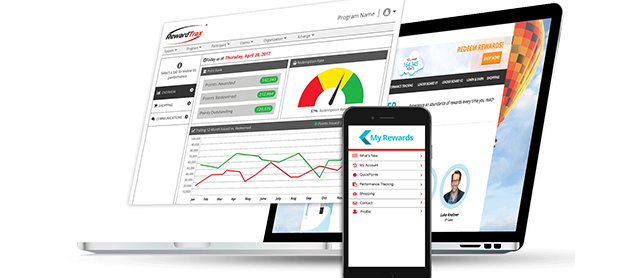Why Commission Isn’t Enough
There was a time when a pharmaceutical sales rep could get by on the strength of his personal relationship with the surgeon. Or a medical sales rep could sit down with a physician, tell a few jokes, and close the deal before hitting the golf course.
Those days are gone. For one, today’s medical sales channel is a little more complicated. There are surgeons, physicians, nurses, nurse managers, supply managers. Cultivating those relationships is expensive and time-consuming—mere social capital isn’t enough. Extensive knowledge of medical equipment and the ability to navigate esoteric pharmaceutical regulations are necessary just to get your foot in the door.
Furthermore, physicians are less open to in-person meetings with pharmaceutical and medical equipment sales reps than they were in the past. Easy access to online publications has made doctors less reliant on sales reps to stay current on the latest offerings. In fact, in a survey by ePharma Physician®, 51% of doctors said they were already aware of the information offered by medical sales reps before they met. This means that only the sales reps with the best connections have the value and leverage to meet with physicians on a regular basis.
Additionally, a rising medical supply or pharmaceutical sales rep has fewer tools at his disposal to influence doctors or forge the necessary business connections in the first place. And increased educational requirements—with many companies requiring their sales reps to have a life science or engineering degree—have further diminished the pool of talent to draw from.
In short, rising pharmaceutical sales requirements have left an industry-wide shortage of qualified sales talent. As pharmaceutical and medical device sales recruiters scramble to compete over an ever-dwindling pool of capable sales reps, it has become imperative for successful medical sales directors, managers, and VPs to make every effort they can to retain their best talent.
Developing a Sales Talent Retention Strategies
With veteran medical sales talent at a premium, the cost of replacement is high—both in terms or search costs and opportunity costs. It has become prudent—necessary, even—for medical and contract pharmaceutical sales managers to implement effective talent retention strategies.
Conventional thought is that sales incentives programs are limited to increasing sales motivation or driving the bottom-line. However, these programs can also have broader applications.
In a field like medical or pharmaceutical sales, where sales reps are naturally driven and well-compensated for their efforts, sales incentives become less about motivation and more about becoming an integral part of retaining talent. It becomes important to make sure your best talent feels valued. Because if a top pharmaceutical sales rep feels that his efforts are not recognized, appreciated, or rewarded by you, he is faced with constant reminders that his services would be valued elsewhere.
Emotional Intelligence
In an information-driven field like contract pharmaceutical sales, it might seem strange that here I mention feelings. But consider this: In the case of a talent shortage, it becomes common for recruiters from competing companies to poach each other’s talent. Top pharmaceutical sales reps are constantly inundated with messaging from competing organizations.
To a large degree, the compensation for a medical sales rep is commission-based and based on their personal and professional connections. Their decision to stay with your company or to jump ship isn’t primarily motivated by monetary factors. The money looks good either way. But if money isn’t the deciding factor, what is?
“The Impact of a Millennial Business Leader’s Emotional Intelligence on Turnover in the Multigenerational Sales Occupational Field,” a dissertation from the Nathan M. Bisk College of Business at Florida Institute of Technology,” brings up several interesting considerations. The first is that salespeople are among the highest risk for workplace turnover. Salespeople switch companies two times more frequently than other positions (Park, 2017).
Secondly, the cost of replacing talent runs twice as high as the cost of annual salary (Park, 2017). This effect is even more amplified in pharmaceutical and medical sales, where supply is low and barriers to entry are high.
But most importantly, William Park’s study found that emotionally intelligent leaders—those that were sensitive to the emotions of their employees and made them feel valued and supported—were able to “accomplish more, reduce negative issues or situations,” “increase employee commitment to the leader (and the company), and reduce turnover (Park, 2017, 160).”
Interestingly, Park’s definition of an emotionally intelligent leader coincides with the outcomes we promote through the incentive programs at Incentive Solutions.
Park writes that an emotionally intelligent leader cares about and creates positive outcomes for his employees. An emotionally intelligent leader “builds trust, establishes a connection, and drives employees to care about the company and its goals (Park, 2017, 161).”
The Role of Incentive Programs
Earlier I mentioned the possibility that sales incentive programs could be repurposed into a business relationship management system for your top performers and best employees. Let’s take a moment to explore why—and how—that is.
Let’s look at things in terms of investment and emotional capital. We’ve already established that, past a certain point, there is very little a medical sales company can do financially for its employees to differentiate itself from its competitors. A successful pharmaceutical sales representative will make money no matter who he works for. He already has the necessary skill set, knowledge, and connections.
Beyond that, cash-based commission has less of an emotional impact than noncash rewards. Eventually, a salesperson absorbs the emotional novelty of a cash commission into the routine calculations of day-to-day life. There’s a point of diminishing returns where cash commissions become associated with baseline pay. About as emotionally stimulating as balancing a checkbook or paying the cable bill.
When people remember the gifts they got on childhood birthdays or, later, on anniversaries with their significant others, they don’t remember the odd twenty-dollar bill they got from their aunt or a check from their grandmother. There is no story behind that. They can’t, in a socially acceptable manner, show that off to their friends. There is no emotional investment in cash.
Cash is not an emotional currency.
What gifts do you remember from an early Christmas? Was it a bike that you used to go on adventures with your friends? Was it an heirloom given to you by a grandfather—an inclusion as a part of a legacy? Was it a note your fiancé wrote you when funds were tight?
Notice how there’s a human tendency to attach an emotional narrative to an object? Now apply that to a reward-based incentive. First, it’s a tangible reminder. The object itself, for the life of the object, and sometimes after, serves as a reminder. Every time an employee interacts with that object, the mental dialogue goes something like this: How did I get this? By meeting my goals for December. Who gave it to me? My employee.
Obviously, this kind of dialogue happens at a subconscious level. But people have a natural tendency to imbue objects with emotions. The object becomes a part of a narrative.
A reward object becomes a symbol—symbolic of a specific time, a specific set of actions and events, a specific relationship.
What is your company doing to build emotional capital with your sales reps? Do you think they are, in any way, shape, or form, emotionally investing in your business?
Bringing it All Together
So far, we’ve established several points:
- Medical sales reps are in high demand
- Replacing them is difficult and costly.
- Cash, especially in such a lucrative profession, isn’t an effective motivator.
- Employees who have an emotional connection to their leadership—who feel their efforts are value—are significantly more loyal to that company.
- Reward objects have symbolic value and an emotional quality—specifically when those objects are associated with an action or a goal.
What this means for pharmaceutical and medical sales directors, is that they can provide consistent positive feedback to their best performers and increase their chances of retaining them, by using reward-based incentives as emotional currency.
Invest in your relationship with your best employees,
And those employees will pay you back—and then some.
Additional Benefits
An effective incentive program has additional benefits. If it is strategically implemented—and backed by the right technology—an incentive program can create a more positive and productive work environment.
If you’ve ever worked in a supervisory role, especially in sales, I think you’ll agree that employees, and sales reps in particular, work harder when they have:
- Purpose—A clearly defined set of goals to work towards. Even better if working towards company goals align with their personal goals!
- Feedback—Metrics that allow them to track their progress. Without consistent and meaningful feedback, it’s hard to stay motivated or to feel like the work they’re doing is impactful.
- Market Insight—Nothing is more frustrating than working toward a goal when you’re unequipped with the data you need to forge a clear path forward.
- Achievable Goals—There’s no quicker way to burnout your relationships with your sales teams than by giving them goals that simply aren’t achievable. Ambition is good—it is necessary—but you should always be setting your sales team up for success.
- Meaningful Recognition—Rewards that are proportional to the task, that feel meaningful and personalized, make your sales reps feel that their contributions are recognized as a valuable contribution to your company.
The proprietary tech suite at Incentive Solutions was designed with these express purposes in mind. With customized CRM Integration and organizational structure-based reporting, this tech is scalable, regardless of the size of the territory you’re overseeing or the amount of moving parts that area entails. Extensive automation also means that time costs stay low on your end—as if you don’t have enough to do!
Easy-to-use dashboards let your medical sales rep monitor their progress and see exactly what they need to accomplish to earn their next reward. This sales data can plug into an optional Leaderboard that lets you foster a little bit of fun, in-house competition. All of this gives meaning to the rewards your top performers might receive later, as they continue to meet their metrics and performance goals.
But most importantly your best sales talent feels that their efforts aren’t going unnoticed. This type of incentive program implementation positions you as an emotionally intelligent leader—a rare quality, especially in an uber-competitive file like medical sales.
The kind of leader that pharmaceutical sales reps will think twice about leaving.

The Incentive Company That Makes It Happen
Incentive Solutions has direct B2B experience working with clients in the pharmaceutical and medical device sales sector. Beyond that, we have over 30 years of experience helping businesses grow and operate more effectively through the strategic use of incentive programs.
Our proprietary in-house tech (which I briefly touched on earlier) has allowed us to go places that other incentive companies can’t. Combine that with creative minds, decades of data-driven results to work from, and a culture that emphasizes growth, it’s time to rethink the way you look at incentive programs. We implement incentive solutions—and no, that’s not just a bad pun—that help businesses turn their problem areas (such as talent retention in a competitive field) into opportunities for growth.
We’re always looking for ways to make businesses better.
In addition to our tech, we also have direct connections to 20+ unique vendors for our reward fulfillment, including in-store pickup for certain brands.
We won’t mention any names, but most other incentive companies use the same vendor that supplies the same tried and tire rewards that your participants will see over and over again with the dozen other point-based incentive programs they’re probably already a part of.
In addition, we have a program called Uniquely Yours, to further personalize rewards for your star performers.
A large focus of this article was about personalizing your relationship with your top-performing medical and pharmaceutical sales reps. Offering unique objects is an important part of developing those emotional associations.
If you are a sales manager, sales director, or sales VP at a company that works in medical or pharmaceutical and would like to explore possibilities for improving your company, we encourage you to call us at (866) 567-7432 or to fill out the registration form at the top of this page.
Also, stay tuned! Later in the series, we’ll be discussing the importance of engagement and automation for an effective incentive program, and later the power of incentive travel to solidify the relationships that mean the most to your business. Specifically how those two principles relate to the pharmaceutical and medical sales fields.
Bibliography
Changing Times Means Changing Medical Sales Methods. (2017, August 28). Retrieved from
https://www.medreps.com/medical-sales-careers/changing-times-mean-changing-medical-sales-methods
ePharma Physician 2017. (2017, June 2017). Retrieved from https://decisionresourcesgroup.com/report/403814-digital-epharma-physician-2017/
Singer, N. (2008, December 30). No Mug? Drug Makers Cut Out Goodies for Doctors. Retrieved from https://www.nytimes.com/2008/12/31/business/31drug.html
Troncale, A. (2016, April 15). The Changing Face of Medical Device Sales-Selling Beyond the OR. Retrieved from https://www.pm360online.com/the-changing-face-of-medical-device-sales-selling-beyond-the-or/



